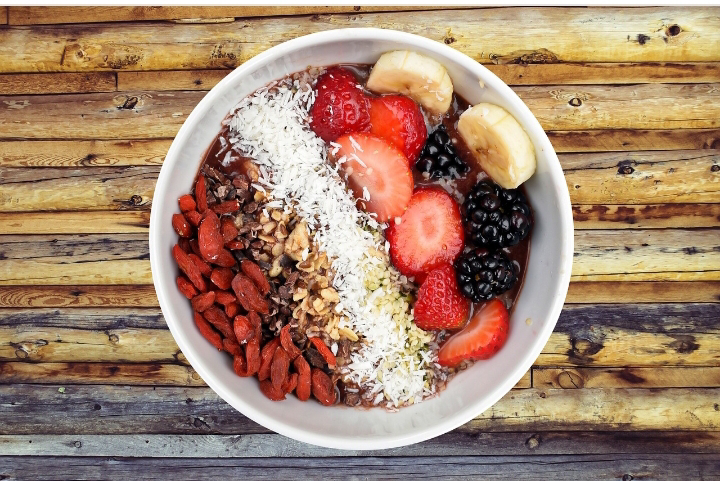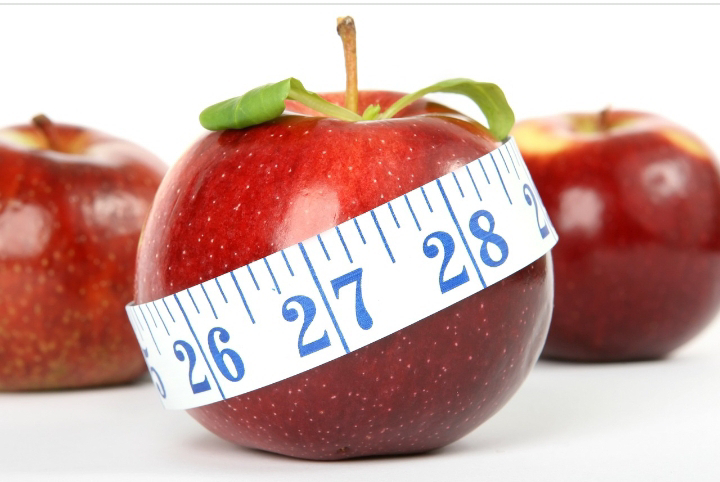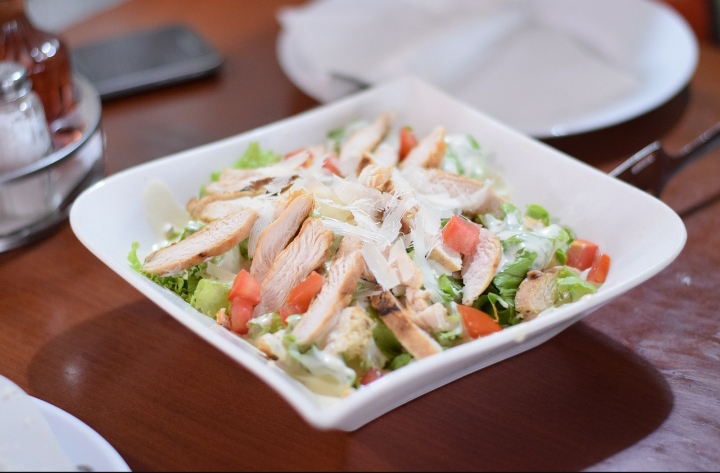Dietary Fiber and their Benefits
Healthy Eating with Dietary Fiber
Healthy food supports a healthy body and mind. Healthy food can be nutrient-rich, packing all the goodness a
food can provide to the body. But for good health do we need different types of food
components only? No, we need something which besides boosting our health can
also make our body function better. One such food component that has the
goodness of nutrition and can be taken without thinking about calories or side
effects is dietary fibre. It is no wonder that nature has bestowed us with various
types of fibrous food or dietary fibers that improve health and everyday body
functions like digestion. They can provide long-term health benefits if taken
regularly in our diet.
Dietary fibers
Dietary fiber is a group of compounds
found in plants that cannot be completely digested. They are mainly
carbohydrate and their analogs that pass relatively unchanged through our
stomach and intestines during the process of digestion. As they are made up of
the indigestible parts or compounds of plants their main role is to keep the
digestive system healthy. Dietary fiber is found in wholegrain, cereals, fruits
and vegetables as they are beneficial to our health and reduce our risk of
disease.
Dietary fiber is now recognized as the
sixth major nutrient after protein, carbohydrates, fats, vitamins and minerals
principally composed of plant cell walls. It also includes components obtained
from cell walls like cellulose, pectin, and lignin.
They are resistant to digestion and
absorption in the human small intestine but have complete or partial
fermentation in the large intestine.
Role of Dietary Fibers
Digestion:
Dietary fibers are also known as Roughage
and have a great role in health, well-being and relief from some common ailments.
They help our body to get rid of undigested food and provide ease from
constipation. They do not provide any nutrients to our bodies. We get dietary
fiber from vegetables, fresh fruits, whole grains and Pulses.
Dietary fiber adds bulk to your diet and acts
as tummy filler food and in the process makes you feel fuller faster. It helps in
speeding the passage of food through the digestive system and provides relief
from irritable bowel syndrome.
Heart health:
An
inverse association has been found between fiber intake and heart attack, and
research shows that those eating a high-fiber diet have a 40% lower risk of
heart disease. Increased fiber intake can lower blood cholesterol and reduce the risk of heart disease. Eating roughage can also help you to regulate your blood
pressure.
Weight management:
Fiber supplements have been shown to
enhance weight loss among obese people. This is due to certain types of fiber
increases feelings of fullness. Anything that reduces your appetite can
decrease your calorie intake. With less appetite, you may lose weight without
even having to think about it. Dietary fibers prevent obesity through the reduction
of hunger and prolongation of satiety. Fiber is often believed to suppress your
appetite. Dietary fiber helps promote weight loss because it's
filling while also being low in calories. And when you eat more high-fiber
foods, you have less room in your diet for foods that are not as
nutrient-dense, such as refined carbohydrates
Blood sugar control:
Certain types of dietary fiber may help to
slow the body’s breakdown of carbohydrates and the absorption of sugar, helping
with blood sugar control. This aspect could be particularly important for those
people suffering from diabetes. It controls your blood sugar as the body is
unable to absorb and break down fiber, it doesn't cause a spike in blood sugar
the way other carbohydrates can.
Protection against colon cancer:
Fiber-rich food cleans your colon, acting
like a scrub brush. The scrub-brush effect of fiber helps clean out
bacteria and other buildup in your intestines, and reduces your risk for colon
cancer. Even for those who are going through cancer treatment, there are
certain medications for nausea and pain that cause constipation. Eating a fiber-rich diet helps in overcoming intestinal ailments, food whole wheat, whole
grains, wheat bran, nuts, seeds, barley, couscous, zucchini, broccoli, cabbage,
dark leafy greens, grapes, root vegetable skins, brown rice, tomatoes and green
beans are good sources of insoluble fiber.
Side effects of dietary fibers
Eating too much fiber can cause bloating, gas,
and constipation. These side effects may occur if a person consumes more than 70
grams of fiber a day. This is uncommon but may happen if someone is
following a vegan, raw, or whole-food diet. Dietary fibers can be consumed no
more than 25-35 grams per day.
Source of Dietary Fibers
Fiber comes in two varieties, both
beneficial to health:
Soluble fiber, which dissolves in water, can help lower glucose levels as well as
help lower blood cholesterol. Foods with soluble fiber include oatmeals, chia
seeds nuts, beans, lentils, apples, bananas and blueberries.
Insoluble fiber, which does not dissolve in water, can help food move through your
digestive system, promoting regularity and helping prevent constipation. Foods
with insoluble fibers include whole wheat products (especially wheat bran), quinoa,
brown rice, legumes, leafy greens like kale, almonds, walnuts, seeds,
and fruits with edible skins like pears and apples.
Whole grain food
The dietary fiber content of whole grains
is very different from other grains. Whole grains of cereals and pseudo-cereals
are rich in both soluble and insoluble functional dietary fiber. Whole wheat,
whole oats, rye, millets and corn can all be consumed as a rich source of dietary
fiber. Whole grains provide fiber, vitamins, minerals and other nutrients.
Whole-grain foods are best to help control cholesterol levels, weight and
blood pressure. These foods also help lower the risk of diabetes, heart
disease and other conditions.
Fresh fruits and vegetable
A diet rich in vegetables and fruits is a
great source of fiber. It can lower blood pressure, reduce the risk of heart
disease and stroke, prevent some types of cancer, and lower the risk of eye and
digestive problems. It also has a positive effect on blood sugar, which can
help keep appetite in check.
Pears and apples with their
skin, kiwi, blueberries, strawberries, raspberry and avocado are great fibrous fruits and a good
source of vitamins and minerals. Banana is full of fiber and vitamins and is a
go-to fruit if you have digestion-related problems. Similarly, vegetables like
cauliflower, bitter gourd, carrot, beetroot and broccoli are always helpful
for your health and provide wholesome nutrients and fiber.
Leafy vegetable
Leafy green vegetables like spinach, lettuce
and microgreens are an important part of a healthy diet. They are full of
nutrients like vitamins, minerals and fiber but low in calories. Eating a diet
rich in leafy greens can bring multiple health benefits including reduced risk
of obesity, heart disease, high blood pressure and mental decline.
Legumes and Pulses
Beans and legumes are rich in plant protein,
fiber, B vitamins, iron, folate, calcium, potassium, phosphorus, and zinc. Most
beans are also low in fat. Legumes are similar to meat in nutrients but with
lower iron levels and no saturated fats. Beans like white beans, kidney beans,
lentils, peas and black gram are nutrition-rich and can be satiating due to
their fiber content.
How to add fiber to your diet
You need at least 30 grams of fiber a day to
get its positive effect. You can boost your daily fiber intake by making a
variety of small changes:
1, For breakfast choose a high-fiber
breakfast cereal, remember to eat one banana in the morning.
2, Eat fruits and vegetables with the skins
on, as the skins contain lots of fiber. Try to eat 4.5 cups of vegetables and
4.5 cups of fruit each day.
3, Add beans or lentils to salads, soups,
and side dishes.
4, Replace white breads, white rice and
pastas for whole wheat grains like barley, millet, amaranth and brown rice. Use
multigrain brown bread instead.
5, Snack on crunchy raw vegetables or a
handful of almonds, walnuts and pistachios instead of chips and crackers.
6, If unable to meet the daily requirements
of fiber, consider using fiber supplements like psyllium husk.
Eating a wide variety of plant foods
like fruits, vegetables, whole grains, legumes, nuts and seeds will help
you reach the fiber recommendation of 25-35 grams daily. Start caring for your health and enjoy life,















Comments